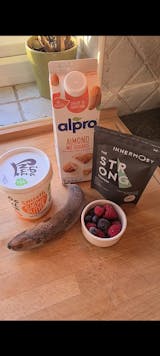If you ever look in the mirror and wonder why you look so tired, lack of moisture could be the answer. Blemishes, puffy eyes and dry skin can all be helped with the application of a soothing men’s moisturiser.
If the thought of skincare has you running but you’d still like to have more of a glow in the mornings than you currently do, never fear. A moisturiser helps to rehydrate the outer layers of your skin and promotes soft skin and an even complexion. This is especially important when it comes to your face, as it’s more exposed to the elements than the rest of your body.
We recommend that you moisturise morning and evening, after cleansing the day’s dirt and the night’s sweat from your face. What kind of moisturiser you use depends on your skin type, the time of year and even the weather. This guide to the best men’s moisturisers will have you looking fresh as a daisy in no time.
Clinique Superdefense SPF 40
This powerhouse moisturiser has a gel texture, which is cooling and refreshing first thing in the morning. Oil free, it’s resistant to sweat and humidity, so will hold strong as you go about your day. Even better is the SPF 40 rating, which means it will block harmful UVA and UVB rays, which can cause skin damage and ageing.
This men’s moisturiser contains antioxidants and vitamins C and E, as well as caffeine, to energise tired-looking skin, hydrating and perfecting it.
The Ordinary Natural Moisturizing Factors + HA
If you’ve always had a thing for science, this moisturiser for men will stand proudly on your bathroom shelf. An all-in-one cream, it offers both immediate hydration and last results from the ingredients. If you have that tends towards dryness, this non-greasy moisturiser will sink into your cheeks and make you look like a new man.
The formula includes multiple amino acids, fatty acids, urea, ceramides and hyaluronic acid , all of which work together to keep the outer layer of the skin hydrated and protected. Be aware, though, that you’ll need a separate daily sunscreen. It’s also exceptionally affordable.
Kiehl’s Super Multi-Corrective Cream
The reliable Kiehl’s has been making stylish products that work for a long, long time. This classic men’s moisturiser has been given a 2020 reboot which makes it one of the best creams around for not only keeping skin hydrated but working to combat the signs of ageing.
Vitamin A helps to remove dead skin cells, and chaga mushroom boosts radiance (and that’s not the only time mushrooms give us a helping hand in life - our The Relax Capsule uses lion’s mane mushrooms in its formula to support brain health). It’s also extra lightweight to apply and will never feel heavy.
Aesop Seeking Silence Facial Hydrator
For the men who are out there working out, smashing their jobs and fulfilling obligations left right and centre, you need a men’s face moisturiser that will pick up some slack. Aesop delivers. This cream is especially good at sorting our flaky skin and redness, so it’s a good choice if you’ve been stressed recently.
Containing ginger root, squalene and bisabolol, it’s rich antioxidants and will leave your skin feeling comfortable and in very good hands. You'll be glowing just as much as when you finish a HIIT workout.























